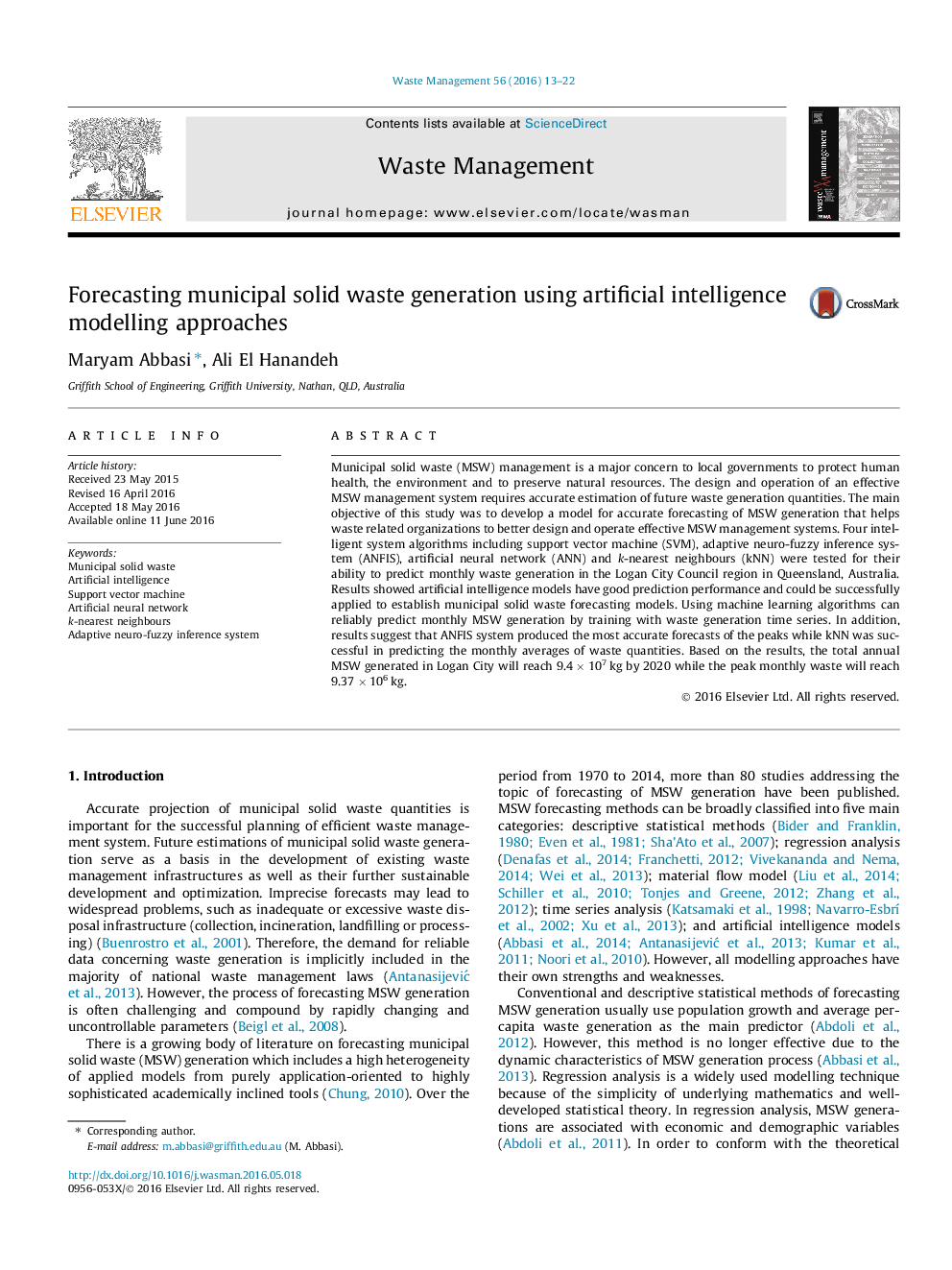| کد مقاله | کد نشریه | سال انتشار | مقاله انگلیسی | نسخه تمام متن |
|---|---|---|---|---|
| 4471108 | 1622630 | 2016 | 10 صفحه PDF | دانلود رایگان |
• The first study to forecast MSW generation using k-nearest neighbour.
• The first comparative study of intelligent models in prediction of MSW generation.
• Forecasting MSW generation in medium term period.
• Forecasting monthly waste generation for a case study in Logan city, Australia.
Municipal solid waste (MSW) management is a major concern to local governments to protect human health, the environment and to preserve natural resources. The design and operation of an effective MSW management system requires accurate estimation of future waste generation quantities. The main objective of this study was to develop a model for accurate forecasting of MSW generation that helps waste related organizations to better design and operate effective MSW management systems. Four intelligent system algorithms including support vector machine (SVM), adaptive neuro-fuzzy inference system (ANFIS), artificial neural network (ANN) and k-nearest neighbours (kNN) were tested for their ability to predict monthly waste generation in the Logan City Council region in Queensland, Australia. Results showed artificial intelligence models have good prediction performance and could be successfully applied to establish municipal solid waste forecasting models. Using machine learning algorithms can reliably predict monthly MSW generation by training with waste generation time series. In addition, results suggest that ANFIS system produced the most accurate forecasts of the peaks while kNN was successful in predicting the monthly averages of waste quantities. Based on the results, the total annual MSW generated in Logan City will reach 9.4 × 107 kg by 2020 while the peak monthly waste will reach 9.37 × 106 kg.
Journal: Waste Management - Volume 56, October 2016, Pages 13–22
